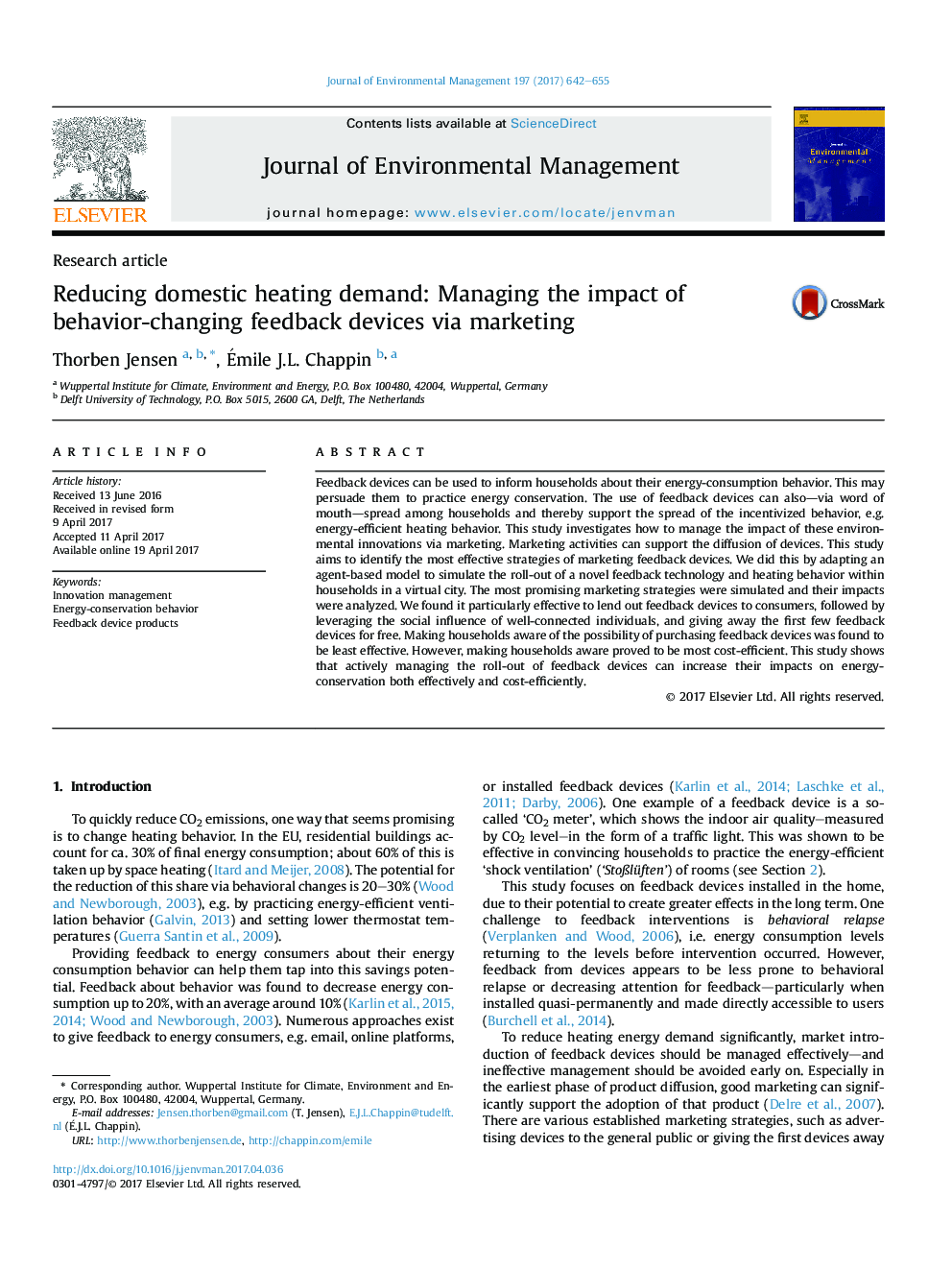| Article ID | Journal | Published Year | Pages | File Type |
|---|---|---|---|---|
| 5116988 | Journal of Environmental Management | 2017 | 14 Pages |
•Marketing showed the potential to manage how feedback devices reduce heating demand.•Based on an agent-based model, marketing strategies could be assessed and compared.•The strategy of lending out feedback devices showed to be the most effective.•Simply making consumers aware of a new product showed to be the most cost-efficient.
Feedback devices can be used to inform households about their energy-consumption behavior. This may persuade them to practice energy conservation. The use of feedback devices can also—via word of mouth—spread among households and thereby support the spread of the incentivized behavior, e.g. energy-efficient heating behavior. This study investigates how to manage the impact of these environmental innovations via marketing. Marketing activities can support the diffusion of devices. This study aims to identify the most effective strategies of marketing feedback devices. We did this by adapting an agent-based model to simulate the roll-out of a novel feedback technology and heating behavior within households in a virtual city. The most promising marketing strategies were simulated and their impacts were analyzed. We found it particularly effective to lend out feedback devices to consumers, followed by leveraging the social influence of well-connected individuals, and giving away the first few feedback devices for free. Making households aware of the possibility of purchasing feedback devices was found to be least effective. However, making households aware proved to be most cost-efficient. This study shows that actively managing the roll-out of feedback devices can increase their impacts on energy-conservation both effectively and cost-efficiently.
